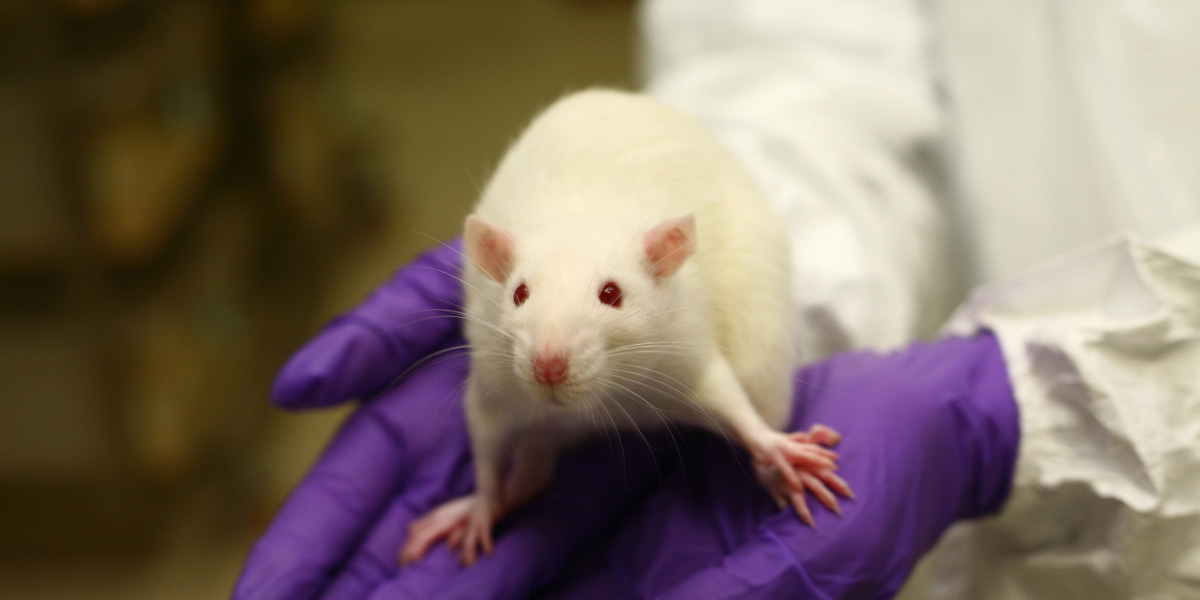Basel, Switzerland: March against Monsanto & Syngenta calls for paradigm shift in agriculture

LET’s KEEP IN TOUCH!
A new privacy law is coming into force on 25 May. To keep receiving email updates from GMWatch, you must update your preferences. If you haven't yet done this in response to our reminder emails, please do so now by clicking this link.
During the annual March Against Monsanto & Syngenta on 19 May 2018, some 1500 people took to the streets for the fourth consecutive year, demanding a paradigm shift in agricultural policy and protesting against the use of highly toxic pesticides, gene technology and patents. They demanded an ecological and diverse agriculture that serves food security instead of profits. A second demonstration took place in Morges in front of the Swiss headquarters of Monsanto. This year’s march once again focused on the growing market power of the agrochemical industry. In addition to last year’s acquisition of Syngenta by ChemChina and the merger of Dow and Dupont, the focus is now on the imminent acquisition of the seed giant Monsanto by Bayer. The three emerging companies would together control over 60% of the commercial seed and pesticide market. The March against Monsanto & Syngenta was supported by more than 50 organisations from Switzerland and southern Germany, including trade unions, the cantonal sections of the Social Democratic Party, BastA! and the Greens, as well as numerous environmental, agricultural and development organisations such as Greenpeace, BUND, Uniterre and SWISSAID.
India: Victory for seed freedom
In India, Monsanto has collected royalties on GM Bt cotton seeds as “technology fees” since 1992, driving farmers into debt, even suicide. Most of the 300,000 farmer suicides in India since 1995 are concentrated in the cotton belt. Now the courts have ruled that seeds – and biological processes for propagation of seeds – cannot be patented and that Monsanto does not have a patent on Bt cotton seeds. Thus all the royalties it has collected are illegal. Monsanto has appealed against the ruling.
The storm brewing in India’s cotton fields
In India, the pests that GM Bt cotton was meant to safeguard against are back, virulently and now pesticide-resistant – destroying crops and farmers. Many hectares of cotton fields were devastated by swarming armies of the pink bollworm. They caused damage not seen in 30 years.
Punjab govt plans to approve GM corn varieties without trials
The Punjab government is trying to grant approval to GM maize in violation of the rules and the regulatory process, leading researchers to condemn the move.
Argentine study links glyphosate herbicide to miscarriage, birth defects
People living in an Argentine town in the heart of the GM soy and maize growing area suffer miscarriages at three times and birth defects at twice the national average rate, a new study shows. In addition, the study found a correlation between a high environmental exposure to glyphosate and an increased frequency of miscarriage and birth defects.
Glyphosate study shows adverse health effects at “safe” dose
Glyphosate-based herbicide caused adverse health effects in rats at a dose claimed to be safe by regulators, according to a new study. Glyphosate herbicides are used on the vast majority of GM crops worldwide. The study was focused on the newborn, infancy and adolescence phases of life. The results (some of which are still pending publication) reveal that a glyphosate-based herbicide was able to alter certain important biological parameters, mainly relating to sexual development, genotoxicity, and the intestinal microbiome.
The Guardian covers glyphosate study
An article in the Guardian features the new glyphosate study (see above). The article notes that in 2017, the Ramazzini Institute, which carried out the new study, was criticised by members of the US Congress, which has provided it with funding. US congress members have also probed funding for the IARC, the agency that classified glyphosate as a probable carcinogen. However, the US Congress attacks on the Ramazzini and IARC were led by Lamar Smith, chair of the House Science Committee. Smith has repeated false narratives planted by Monsanto and chemical industry allies and is a climate science denier.
IARC’s cancer classifications are sound – peer-reviewed paper
The processes used by the WHO’s cancer agency IARC to classify substances according to their carcinogenicity are robust and transparent, not flawed and biased as suggested by some critics. This is the conclusion of a peer-reviewed analysis by Jonathan M. Samet of the Department of Preventive Medicine, Keck School of Medicine, University of Southern California, Los Angeles.
MEPs' pesticides investigation: “Health should be the priority”
In the wake of the scandal-ridden EU re-approval of glyphosate for another five years, Parliament’s pesticides committee has until the end of 2018 to investigate and propose improvements to the procedure for the authorization of pesticides. Committee chair Eric Andrieu, a French member of the S&D group, told EU Reporter, “For us the most important thing is safeguarding the health of 500 million Europeans. Of course farmers use glyphosate, but when you ask them, 'Would you continue to use glyphosate if they are found to be a health hazard?', they say 'no'. They will find a solution.”
Glyphosate formulations more toxic than their active ingredient, tests show
After more than 40 years of widespread use, new scientific tests by the US National Toxicology Program show glyphosate herbicide formulations as sold and used have higher rates of toxicity to human cells than the active ingredient glyphosate alone. These results confirm the findings of other researchers over many years, both in vitro and in vivo. Much of the in vitro work was led by Prof GE Seralini in France.
Glyphosate found in granola and crackers, internal FDA emails show
The FDA has been testing food samples for traces of glyphosate for two years, but the agency has not yet released any official results. FDA chemist Narong Chamkasem found “over-the-tolerance” levels of glyphosate in corn, detected at 6.5 parts per million, an FDA email states. The legal limit is 5.0 ppm. An illegal level would normally be reported to the Environmental Protection Agency (EPA), but an FDA supervisor wrote to an EPA official that the corn was not considered an “official sample”.
Glyphosate a factor in citrus greening?
Citrus greening of fruit in citrus orchards – a problem to which GM is often touted as being the only solution – disappeared when glyphosate soil residues were reduced by microbial treatment and canopy sprays of certain amino acids and nutrients, according to a letter to the editor of the Gainesville Sun newspaper.
Monsanto labelling suit advances in Washington
Explaining why he advanced a labelling challenge to the weedkiller Roundup, a federal judge said that there is enough evidence at this stage to support the claim that Monsanto misleads consumers. The groups Beyond Pesticides and the Organic Consumers Association brought a lawsuit in April 2017, saying Roundup labels falsely claim that glyphosate, the key ingredient, “targets an enzyme found in plants but not in people or pets”. The enzyme does in fact exist in animal gut bacteria.
Herbicide-dependent weed control failing, industry says
Rising costs and diminishing effectiveness: herbicide-dependent weed control is not going well, in the industry’s own words. In addition, there are challenges around the application of the drift-prone herbicide dicamba, including restrictions imposed on spraying by some states. This blog post from CropLife is testament to the redundancy of the chemical agriculture model.
Industry studies on pesticides to be made public, says EFSA boss
Stung by the glyphosate scandal, the EU Commission has brought out new proposals requiring the publication and transparency of industry funded studies on pesticides. The Commission also proposes to put in place a register of industry studies so that they cannot be buried if they produce unfavourable results. GMWatch and other NGOs have argued for years for these reforms. So we cautiously welcome the Commission’s proposals, but recommend that citizens remain vigilant to ensure that they are implemented rigorously.
Bollworms from many areas in US southern states now resistant to Bt toxins
Cotton farmers across the state could face a growing bollworm problem this season, said Dr David Kerns, Texas A&M AgriLife Extension Service entomologist and statewide integrated pest management coordinator at College Station. “Essentially, we have bollworm resistance to all the Cry proteins – all of them,” Kerns said.
Judge allows peach farm’s Monsanto, BASF herbicide lawsuit to go forward
A lawsuit against Monsanto and BASF over the spraying of dicamba herbicide that allegedly damaged neighbouring peach crops will move forward after a federal judge denied a motion to dismiss the case.
FDA OKs GM salmon facility at Albany, Indiana
The US Food and Drug Administration has approved a controversial application for an AquaBounty GM salmon facility near Albany, Indiana. However, an “import alert” for GM salmon remains in place, preventing US production.
As DIY gene editing gains popularity, “Someone is going to get hurt ”
After researchers created a virus from mail-order DNA, scientists are sounding the alarm about the genetic tinkering carried out in garages and living rooms. Even a biohacker says “Someone is going to get hurt.” And Lawrence O. Gostin, an adviser on pandemic influenza preparedness to the World Health Organization, said, “There are really only two things that could wipe 30 million people off of the planet: a nuclear weapon, or a biological one. Somehow, the US government fears and prepares for the former, but not remotely for the latter. It baffles me.”
A mysterious new form of DNA was just discovered in human cells
The existence of one shape of DNA in humans, in particular – a four-stranded knot of genetic code – has been controversial among scientists for years. A new study provides the first direct evidence that it does exist and that it may play an important role in regulating our genes.
How many genes do cells need? Maybe almost all of them
An ambitious study in yeast shows that the health of cells depends on the highly intertwined effects of many genes, few of which can be deleted together without consequence. Even seemingly unrelated genes can have crucially interconnected effects.
Should Africa accept GM Bt maize in fight against fall armyworm?
GMO proponents are claiming that Africa must accept GM Bt insecticidal maize to defeat the fall armyworm pest – but they are playing fast and loose with the facts, misleading farmers and policymakers alike. GM Bt insecticidal maize targeting the fall armyworm has already failed, while agroecological methods, such as attracting ants to eat the armyworm eggs, are working well.
Africa: Push-Pull technology halts fall armyworm rampage – without GM
A climate-adapted version of the agroecological pest control method, Push-Pull, is successfully combating the fall armyworm pest, according to a recent study based in East Africa. The method is accessible, environmentally friendly, and cost-effective. The study was led by the International Centre of Insect Physiology and Ecology (icipe), which commented, “These findings represent the first documented report of a readily available technology that can be immediately deployed in different parts of Africa to efficiently manage the fall armyworm. ”
Ugandan president does U-turn on pro-GMO law
Pro-GMO scientists have expressed “shock and anger at the proposed restrictive requirements that were included in the long-awaited law on biotechnology, with some labelling them a disaster and a huge setback for the country ”. It appears that the GMO promoters are furious about being held liable if things go wrong as a result of GM technology.
Swaziland approves import and environmental release of GM Bt cotton
The Swaziland Environment Authority (SEA) has granted approvals for import of Bt cotton seed and environmental release of the crop, making the country (now called eSwatini) the latest African nation to adopt GM Bt cotton. Clearly eSwatini has learned no lessons from the experience of Burkina Faso, which threw out GM Bt cotton due to poor fibre quality, and India, where the crop has failed due to attack from the very pests it was supposed to kill.
Seeds of neo-colonialism – Why the GMO promoters get it so wrong about Africa
The GMO lobby is on the offensive with a major public relations push targeting East Africa, particularly Uganda, in an attempt to subvert African policy development towards its own ends. The Alliance for Food Sovereignty in Africa (AFSA) takes a look what has actually happened in African countries where GMOs have been rolled out.
Stop Golden Rice! network protests impending approval of GMO golden rice in the Philippines (video)
In April, more than 500 farmers, consumers, academics, women and children, as well as international participants from Asia, New Zealand and Australia, converged in front of the Philippines Department of Agriculture to demand that it scrap the application for open field testing and direct use of GMO golden rice.
Ducks replace pesticides (video)
Japanese rice farmers are using ducks instead of pesticides. The ducks eat all the weeds and insects - but leave the rice alone.
EU Member States approve enhanced neonics ban
EU Member States have endorsed the Commission’s proposal to completely ban the outdoor agricultural uses of three neonicotinoids, which are toxic to bees, butterflies, and aquatic life. Most GM seeds, as well as non-organic non-GM seeds, are treated with neonicotinoid insecticides.
Neonics: European Court of Justice upholds restrictions on use
The General Court of the European Court of Justice has confirmed that the European Commission acted lawfully by banning the use of bee-killing neonicotinoids on bee-attractive crops in 2013. The verdict from the Court is an answer to the challenge that Bayer and Syngenta initiated.
Special event in London 24 May: What’s making our children sick?
We live in a toxic world and children feel the impacts more than others. This is why Beyond GM is co-hosting a special event in London on 24 May, for the UK launch of the book What’s Making Our Children Sick? How Industrial Food Is Causing an Epidemic of Chronic Illness, and What Parents (and their Doctors) Can Do About It. The authors, California-based paediatrician Michelle Perro and medical anthropologist Vincanne Adams, will speak about this topic. When we checked today there were only a few tickets left, so book now!
The science is still out on GMO food safety – Prof David Schubert
In a letter to the editor, Prof David Schubert of the Salk Institute critiques an ill-informed article by columnist Michael Gerson that claims GMOs are safe to eat. Gerson’s article parrots the professional GMO promoter Mark Lynas and is predictably titled, “Are you anti-GMO? Then you’re anti-science, too ”. Needless to say, the only scientist among these three people is Schubert, who points out that there is no scientific consensus on GMO safety.
Bayer man wants to abolish animal feeding studies with GMOs
Bayer’s Julian Little argues that the EU requirement for 90-day animal feeding studies with GMOs should be abolished. He claims that such studies “do not make sense” and that they “provide no added value to the safety assessment ”. But in reality, GM crops and foods should be tested in long-term animal feeding studies, for the simple reason that such tests – and even the short-term ones – have revealed unexpected toxicity and allergenicity. And such studies may help protect animal consumers in general against the more toxic GMOs.
New evidence of failure of Oxitec’s GM mosquito trials
GeneWatch UK has published a new briefing on Oxitec’s GM mosquitoes, which have been released in open air experiments in the Cayman Islands, Panama, and Brazil. The briefing includes new evidence recently released as a result of Freedom of Information requests, which shows that scientists at the Mosquito Control and Research Unit (MRCU) in the Cayman Islands who have access to the experimental data believe there has been “no significant reduction in the abundance of Aedes aegypti in the release area ”. In addition, tens of thousands of female GMO mosquitoes, which can bite, were released (despite claims by Oxitec that only a tiny amount of female mosquitoes were ever accidentally included) – potentially increasing the risk of mosquito-borne diseases.
Farmers switched to organic after pesticides made their families sick
Some farmers transition to organic production to earn premium prices. Others switch to make their farms more sustainable. But for some farmers, transitioning to organic is a necessary way to protect their family’s health – and even save their lives. They have switched because of a health crisis they had – or even the death of a family member – due to pesticide exposure.
Public pesticide ban gaining support on London borough councils
A total of 139 councillors have been elected across London who support stopping the use of pesticides in public places.
Dublin City Council to trial alternative to glyphosate in parks and on streets
Dublin City Council has announced it will trial alternatives to the use of glyphosate as a weedkiller on streets and in parks in Dublin.
RIP Dr Samuel Epstein
Dr Samuel Epstein, a giant in the field of cancer prevention who helped wake up the public to the fact that most cancers are caused not by genes but by exposure to toxic chemicals, has died aged 91. Dr Epstein did important work exposing the risks of the genetically modified dairy hormone rBGH. That work had a big influence on many people who became critics of the GMO food venture.
LOBBYWATCH
Why did a women’s shelter return Kevin Folta’s donations?
Two large donations made by the well-known GMO promoter, and chair of the University of Florida’s horticultural sciences department, Kevin Folta, were rejected by an organisation seeking to protect people from sexual assault and all forms of domestic violence and abuse. Now an eye-witness statement that appears to be signed by the director of the women’s shelter has emerged, testifying to an incident in which Folta allegedly kicked his estranged wife because she was paying insufficient attention to what he was saying. The statement also claims his wife showed signs of having normalized abuse. GMWatch director Jonathan Matthews says the University of Florida must investigate these new allegations.
Kevin Folta: Omission impossible?
GMO-promoting scientist Kevin Folta has repeatedly claimed that he is “100% transparent” regarding receiving personal compensation from private companies. He added that failure to disclose such funds, in this age of increased public scrutiny of scientists' income streams, is a case of “omission impossible ”. But some sources are now claiming he’s hiding corporate monies. Jonathan Matthews looks at the latest accusations and says it’s time for the University of Florida, Folta’s employer, to investigate.
Dr Belinda Martineau takes down Food Evolution GMO propaganda film
The pro-GMO propaganda film Food Evolution fails to be open and honest about crucial facts about genetic engineering, writes Dr Belinda Martineau, developer of the world’s first commercialised GM food.
Is the public to blame for collapse of the GMO venture?
As Europe’s universities shut down their GMO programmes, plant genetic engineer Devang Mehta is quitting the field, blaming public hostility to GM. According to Mehta, the ignorant masses, through their irrational anti-science attitudes, are responsible for preventing philanthropic genetic engineers from feeding the poor. But the facts tell a different story. They suggest that it’s not public opinion but the failure of GM technology that has prompted scientists to leave the field. Part 1 of this 2-part article series by GMWatch editor Claire Robinson focuses on the still non-commercially viable GMO golden rice, while part 2 describes failed attempts to engineer virus-resistant cassava for Africa.
Biotech industry spin seeks to exempt new GMOs from regulation
The biotech industry is working hard to convince decision makers and the public that the products of new GM techniques can go without safety checks and labelling. Corporate Europe Observatory (CEO) takes apart the industry’s arguments and exposes the tactics that it is using to paint these hidden GMOs as natural and safe – including a new hashtag for social media, #EmbracingNature. CEO points out that if the industry gets its way, then plant breeders, farmers, food processors and consumers will lose their right to make informed decisions about the products they want to work with and eat.
“Independent scientists” serve the interests of industry over new GM
GMO industry lobbyists are very active in the EU - and if they achieve their aims, the environment and consumers could be severely impacted. The lobbyists, including ostensibly “independent” scientists, are attempting to persuade politicians and lawmakers that the new methods of genetic engineering, based on methods such as the CRISPR/Cas technique, should be exempted from EU GMO regulation.
EFSA collaborates with GMO industry to dismiss superweed risks
A new publication discusses – and downplays – the risks of the uncontrolled spread of transgenes from GM maize grown in Spain. The paper is the result of close and ongoing collaboration between experts of EFSA (European Food Safety Authority) and the biotech industry.
Do we need GM crops to feed the world?
A new report shows that the argument that GM technology can solve the problem of world hunger, or be a tool towards ending hunger, is compelling but false.
Monsanto hosts first Science Day for teachers
Monsanto has hosted its first “Science Day” for teachers. Monsanto’s agenda focused on two aspects: future science and technology in agriculture and the opportunities they can create, and understanding modern agriculture with GMOs, labels and data.
Biased questioning in “millennials” GMO survey
A survey commissioned by the GM industry body the Agricultural Biotechnology Council (ABC) and carried out by the polling firm Populus found that “Millennials 'have no qualms about GM crops' unlike older generation ”. Many of us who are opposed to GM foods and crops wondered if the questions asked were biased, since the GMO lobby has a long history of asking leading questions in surveys in order to get the results they want. It turns out that the skeptics were right. The questions, which were not published at the same time as the survey, were appallingly biased. They made unsubstantiated claims about the miraculous ability of gene editing to solve the problems that face food production and agriculture and only then asked the survey respondents if they supported gene editing.
GMO lobby caught in ruse to spin GMO survey results
Polling firm Populus is a member of the British Polling Council (BPC), which stipulates in its rules that survey questions should be made public on the polling firm’s website within two working days of the answers being published. This is meant to enable people to judge whether the questions are biased (though in our view they should be published at the same time).
The Agricultural Biotechnology Council (ABC) not only failed to publish the survey questions when it announced the results to the press, but also effectively prevented Populus from doing so. This was how the ruse was achieved: The ABC announced the results to the press during a UK Bank Holiday (5-7 May) and the questions were only published on the Populus website several days later.
The BPC responded to a concerned member of the public in an email confirming that its rules had been breached, but explained: “In this case, Populus were not advised by their client [ABC] of when they intended to publish the survey results, and they only became ware of publication on May 10 - presumably because of your request for the details. I understand the full details were placed on the Populus website within an hour of your request. Whilst this is a technical breach of the BPC rules by Populus it is understandable given their lack of prior warning about publication. ”
It’s clear that the ABC is guilty of the kind of misleading spin we have come to expect from the GMO lobby – but it’s also astonishing that Populus was willing to pose such biased questions. We're told by people who have themselves commissioned surveys that reputable polling companies normally insist on questions being posed in a way which does not clearly bias the answer and refuse to provide those polled with one-sided information.
TAKE ACTION!
US Action: Give us clear GMO labelling
On May 3, the US Department of Agriculture (USDA) released its long-awaited proposed regulations for the mandatory labelling of foods produced using genetic engineering. The agency has proposed a variety of smiley-face labels that don't actually mention the word “GMO ”. Alternatively, companies can use a QR code instead – an option that requires the public to have a smart phone and an internet connection. Tell the USDA that clear on-package text or an easily understood symbol should be the only acceptable option for food companies.









